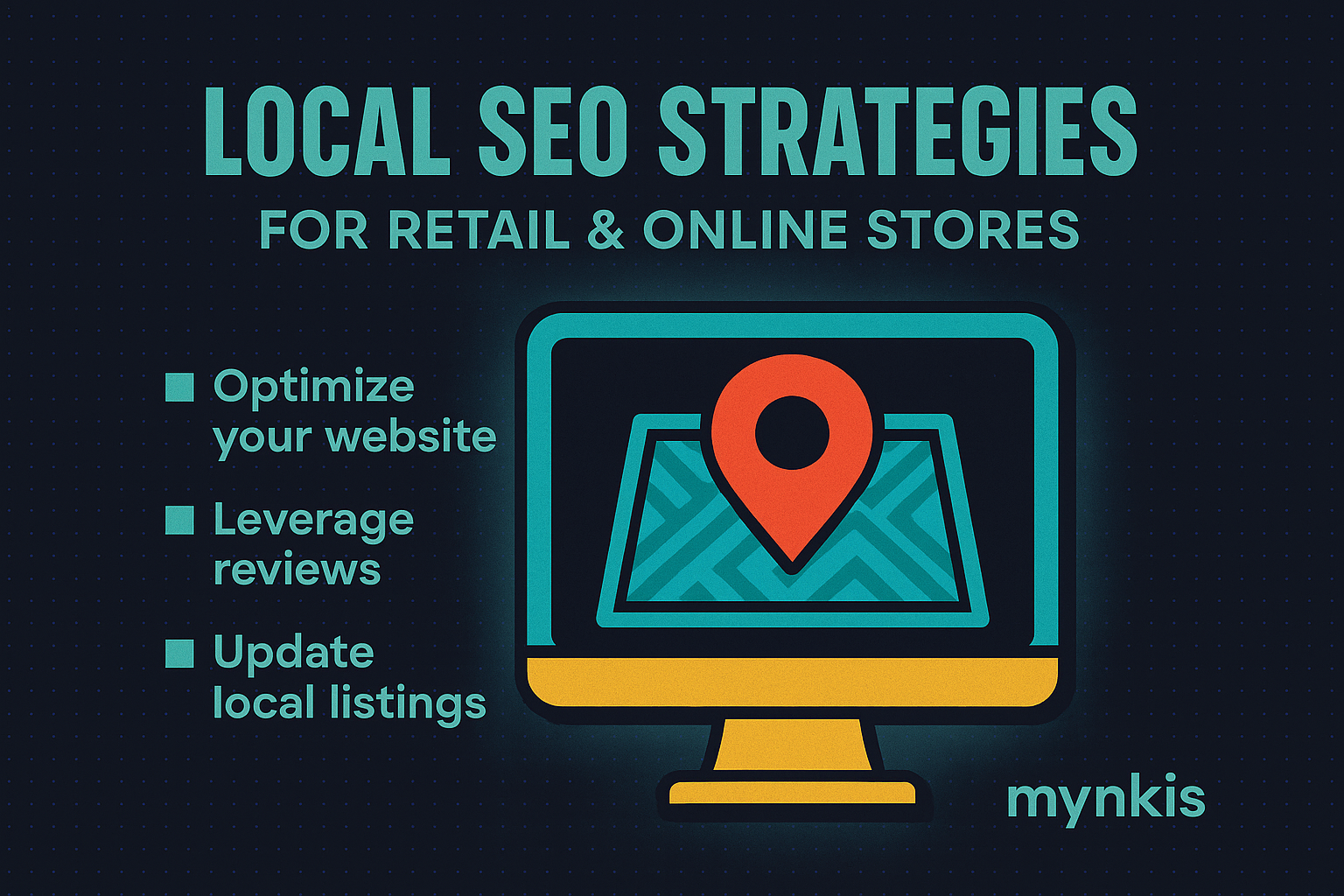Schedule a Demo
I've worked with many retailers looking to enhance their digital footprint without the heavy reliance on advertising. A robust online store not only offers your products but integrates SEO to elevate its visibility and enhance user experience. Navigating the nuances of local SEO presents its own set of challenges and opportunities, which we'll dive into today. Whether you manage a burgeoning small shop or a chain with multiple locations, the strategies outlined here can be adapted to your unique situation, focusing on long-term growth.
Local SEO dives into the specifics of serving a local audience. Unlike general SEO, which targets broad audiences, local strategies center around searches linked to geographic locations. For example, someone looking to buy artisan coffee might search for "coffee shop near me" or "best coffee in San Francisco." As such, local SEO targets keywords and integrates your website into platforms like Google Maps and local directories.
When thinking about keyword research, it's crucial to tailor your approach to local audience behaviors. Beyond general keywords like "boutique clothing" or "latest electronics," think in terms of locality. Keywords such as "San Diego fashion store" or "electronics store Los Angeles" become invaluable. Utilizing tools like Google's Keyword Planner or SEMrush's Keyword Magic Tool can illuminate high-volume, low-competition local keywords that are ripe for the taking.
Google My Business stands as one of the most potent tools in local SEO arsenal. By setting up and optimizing your Google My Business listing, you place your business directly in front of customers searching for your services in their area. Make sure all details are accurate—from opening hours to the address. Encourage customers to leave reviews, as a high number of positive reviews can boost your local search rankings significantly.
Implementing schema markup on your website goes a long way in making your business's location visible. Search engines benefit from structured data, which helps them understand the specifics of your business location and offerings. From a "LocalBusiness" schema that specifies your type of business to a "PostalAddress" schema for your store locations, schema markup aids in delivering more detailed search results to potential customers.
Local backlinks and citations play a pivotal role in how well your site ranks in local search results. This involves building links from reputable local sites—like community blogs, local news outlets, or directories. Citations—that is, mentions of your business name, address, and phone number on various online platforms—also strengthen your business's credibility and visibility.
In today's mobile-centric world, ensuring your website is optimized for mobile devices isn't just important; it's non-negotiable. Local searches happen frequently on mobile devices, particularly when people are looking for stores "near me." A responsive design that adjusts seamlessly to various screen sizes and fast load times can significantly improve user experience and, in turn, your SEO performance.
Content is the backbone of any SEO strategy, and localized content adds an extra dimension to your marketing efforts. Create blog posts, videos, or guides about local events or news relevant to your business. For instance, a tech store might create content around a local tech festival or latest city regulations affecting electronics purchases. This not only boosts SEO but also positions you as a knowledgeable local brand.
Customer engagement and reviews are influential factors in local SEO. Positive reviews not only help convert potential customers but also signal to search engines that your business is reputable and worth ranking higher. Encourage your customers to leave reviews, respond to them professionally, and showcase them prominently on your website to leverage their SEO benefits.
SEO strategies require consistent monitoring and adjustments based on performance metrics. Use tools like Google Analytics and Google Search Console to track how well your local SEO efforts are performing. Keep an eye on your search rankings, click-through rates, and user behaviors to fine-tune your strategy accordingly.
While much of the focus in local SEO goes to content and visibility, technical SEO can't be overlooked. Ensure your site's URL structure clearly reflects local targeting, if applicable. Moreover, work on site speed, mobile-friendliness, and secure connectivity (HTTPS) to help improve how search engines view your site's relevance and credibility for local searches.
As voice search continues to grow in popularity, optimizing for this trend becomes increasingly relevant. Phrase your keywords in a way that mimics how people would say them aloud. For instance, someone using voice search might say, "Where can I buy shoes in Santa Monica?" Rather than just optimizing for "shoes Santa Monica," also target the natural spoken query.
Lastly, consider the broader impact of community involvement. Engaging with local events, charities, or groups can not only enrich your community but also provide unique content and links that support your SEO. This real-world interaction translates into digital credibility, helping to solidify your business's presence in local search results.
In crafting a local SEO strategy, it's vital to understand that while the tactics highlighted here provide a strong foundation, individual results may vary. Every retailer's situation is unique, and thus, adjustments based on industry, location, and audience demographics may be necessary. What remains constant, though, is the potential to grow and flourish in your local market by optimizing these search signals.
